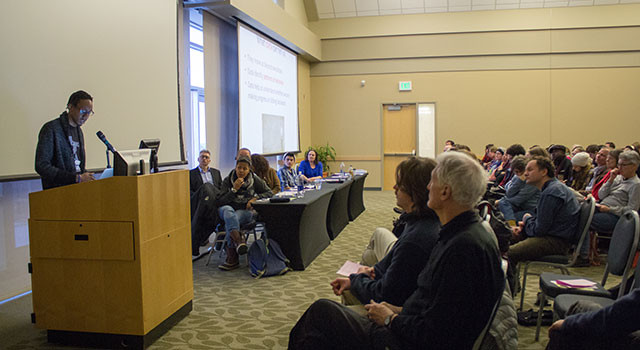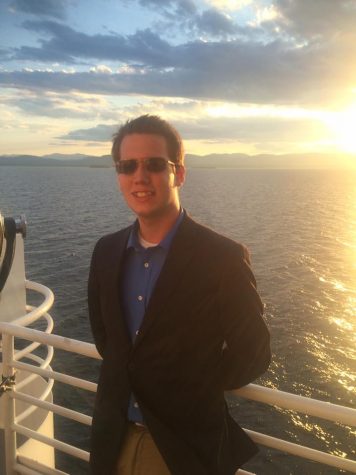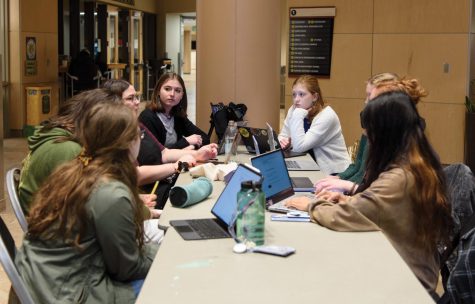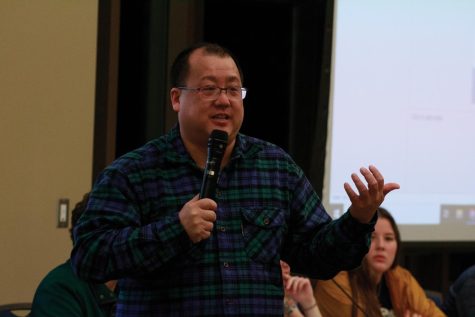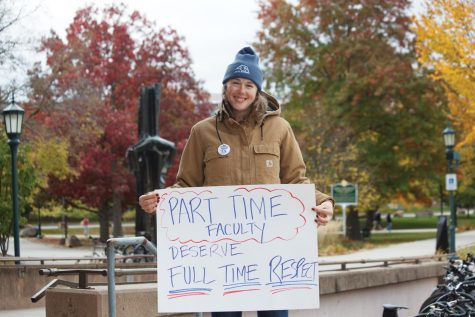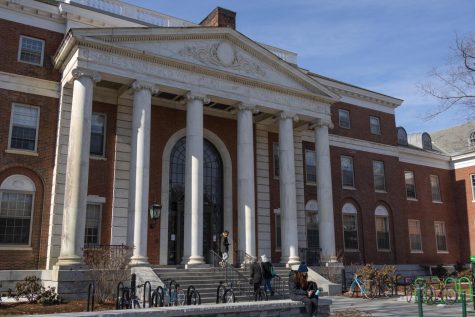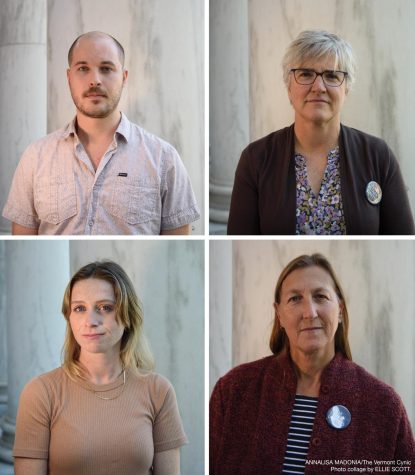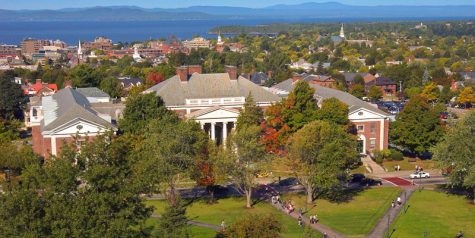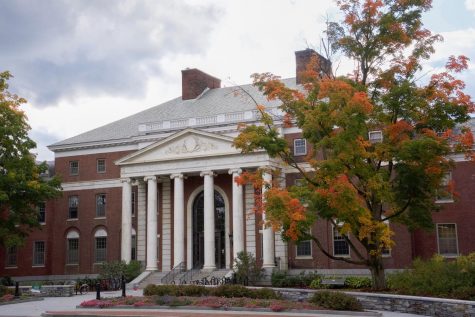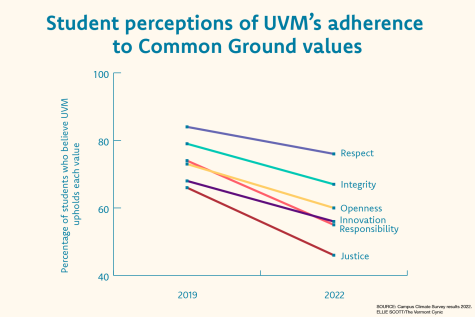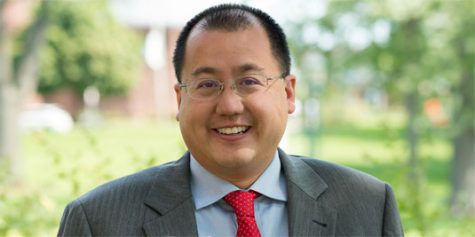Teach-in focuses on racial justice
March 10, 2015
A new United Academics committee focused on civil rights hosted a discussion about racial justice in Vermont and at UVM.
The Civil Rights Committee hosted and sponsored the teach-in event, “Vermont is NOT an Exception.,” Feb 23.
During the event, a panel of UVM professors, students and civil rights activists, such as Todd St. Hill from the We Charge Genocide movement in Chicago, discussed the issue of racial equality within Vermont and UVM.
“This is definitely a conversation that should be happening more often, and I think that it’s a conversation that’s ignored by a large majority of the UVM student population, and I think that’s a real shame, and I’m very happy that something like this is being held,” sophomore Adrian Pascual said.
This event was created by the recently-founded United Academics Civil Rights Committee, which was “inspired by the vibrant anti-racist movements that have grown in the wake of Ferguson and Staten Island,” according to the teach-in’s program.
United Academics Civil Rights Committee Co-Chair and associate professor of English John Gennari gave the welcoming speech for the event.
“Unions across the country have adopted resolutions to address what we see as a problem with justice, and our union decided we needed to become a part of that broader effort,” Gennari said.
During the forum, students, faculty members and local residents were allowed to voice comments and questions to the panelists.
“I think it was very important because it is a very difficult conversation that all of us should have, and I think it was great because we invited the community and not just people on campus,” junior Roxy Chang said.
“I didn’t grow up in the U.S., but coming to UVM, it’s a part of how I come to terms with all of these things they talked about, and racism does exist and it’s a problem in the state and in the school,” Chang said.
One of the first panelists to speak was UVM professor of economics Stephanie Seguino, who presented her recent study on racial disparities in Vermont State Police traffic stops.
“If blacks were 3 percent of the population, we’d expect them to be 3 percent of the drivers stopped. If they are more than 3 percent it means they are over-stopped and if you’re white and your percentage stopped is lower than your population share, it means you are under-stopped,” Seguino said.
Relative to their share of the population, black drivers are 80 percent more likely than white drivers to be stopped by the Vermont State Police, and in Burlington they are 76 percent more likely to be stopped than white drivers, according to her report.
Sequino believes that Vermont is similar to the rest of the country. We do worse than North Carolina, Illinois and Texas, Seguino said.
“We do worse than Texas, although that may be because it’s largely Hispanic, that is the minority that is targeted, and so I’m not suggesting that we make too much out of Texas, but it’s important to recognize that in many ways Vermont is like the rest of the country,” Seguino said.
“I thought it was really great. I mean, it was a breath of fresh air to me … and tonight I felt real communication that I didn’t think existed here in this country,” junior Nick Patyk said.
“It was great hear people actually thinking about how to change something, and again it’s great to think and talk, but obviously it needs to end in precise and specific actions and goals,” Patyk said.


